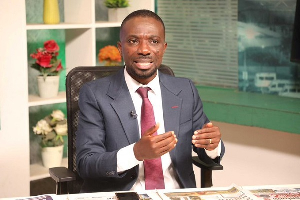Dennis Miracles Aboagye, aide to former Vice President Dr. Mahamudu Bawumia, has launched a scathing attack on former President John Dramani Mahama, accusing his administration of mishandling the Bawku conflict and allowing it to evolve into a volatile and politically charged crisis.
Speaking on Channel One TV’s Breakfast Daily on Wednesday, July 30, Aboagye claimed that the Mahama-led government failed to manage the conflict effectively, allowing a traditional chieftaincy dispute to degenerate into cycles of revenge-fueled violence.
“I’m only telling the President that he is simply reaping the results of the recklessness of himself and his government functionaries on the issue of Bawku,” Aboagye stated. “What he needs to do is some quick self-introspection, find ways and means, and go to Bawku to have conversations with the people.”
Violence Escalates in Bawku
Aboagye’s comments come amid renewed concern following violent incidents in the Upper East Region, including the recent killing of Hakim Kundima, a third-year student of Bawku Senior High School. The tragic event prompted the temporary closure of the school and the imposition of a strict 6 a.m. to 2 p.m. curfew in the Bawku Municipality.
In response to the rising tensions, the Ghana Armed Forces have deployed troops and armoured vehicles to key locations such as Tamale–Bolgatanga highway, Bawku, Sandema, Tilli, and Pusiga/Polmakom as part of a scheduled training operation. Government officials say the move is intended to bolster internal security and readiness against emerging threats.
However, Aboagye dismissed these measures as insufficient, arguing that the military presence addresses the symptoms, not the root causes of the conflict.
“Declaring curfews and moving military men around the community is not enough,” he said. “The issue in Bawku is not just about traditional authority; it’s political, yes, but what is now driving the violence is vengeance. And you don’t solve vengeance with guns.”
Call for Dialogue and Reconciliation
Aboagye urged President Mahama to shift away from what he described as “token responses” and adopt a human-centred approach to peacebuilding in Bawku.
“It is time for leadership to move beyond press releases and security meetings. The President must sit down with the people, listen to their pain, and begin a new process of healing,” he added.
The Bawku conflict, which has spanned decades, has often been characterized by intermittent violence linked to deep-rooted ethnic and political tensions. Analysts warn that without meaningful engagement and a long-term peace strategy, the cycle of violence may persist and further destabilize the region.

